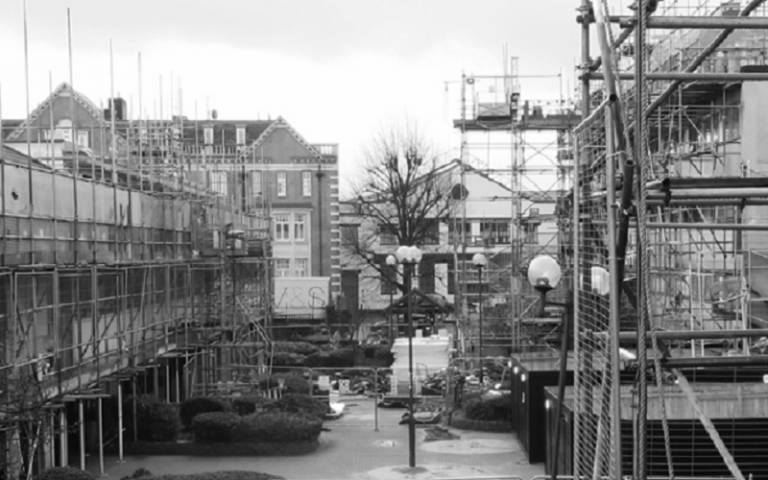Community-led Social Housing Regeneration
11 June 2019, 4:00 pm–8:00 pm

This event brings together activists, community organisations and researchers that have been involved and/or have studied resistance to social housing demolition in London and diverse forms of community-led strategies for taking control of regeneration processes. The event is part of a research project title ‘Community-led social housing regeneration: between the formal and the informal’, developed by Pablo Sendra (UCL) and Daniel Fitzpatrick (UCL), in collaboration with Just Space.
Event Information
Open to
- All
Availability
- Yes
Organiser
-
Pablo Sendra
Location
-
Gibbs Green HallDieppe CloseW14 9NNW14 9NN
The aims of the event are:
- to hear from both residents and researchers on recent experiences of communities resisting demolition and proposing alternatives forms of regeneration;
- to discuss future activist and research work to be done to support communities facing the demolition of their homes.
Programme:
Panel 1: Communities and campaigns resisting demolition and proposing community plans.
Where are the campaigns at now and what they need for going forward?
Speakers: West Ken and Gibbs Green Community Homes, Walterton & Elgin Community Homes, Alexandra & Ainsworth Estate, The People‘s Empowerment Alliance for Custom House (PEACH), Save Cressingham Gardens.
Panel 2: Researchers looking at resistance to demolition, community-led plans, the effects of displacement, and the effects of austerity on social housing.
Results of their research and discussion on how to address current and future challenges for social housing (in response the discussion in panel 1) Speakers: Loretta Lees, Joe Penny, Pablo Sendra & Daniel Fitzpatrick.
Food and drinks break (provided). Catering from a local resident from West Ken and Gibbs Green.
Breakout discussion sessions on challenges for community-led social housing:
- Fuel poverty and residents’ control.
- Financing community-led regeneration: funding opportunities and other alternatives.
- Knowledge: exchange between communities, researchers and professionals.
- Community organising: good governance, democratic accountability, reaching the wider community and influencing decision-making.
Summary of the project and findings:
The research project explores which planning and design tools, along with informal actions on the margins of planning, community groups are using to oppose social housing demolition and propose alternative community-led plans. One of the aims of this project is to produce outputs that support communities facing the demolition of their neighbourhoods. Through the analysis of case studies and an examination of the available planning tools, this project is producing a book that can provide guidance to residents who want to influence decision-making, lead and/or take ownership of the regeneration of their neighbourhoods. The book will be titled Community-Led Regeneration: A Toolkit for Residents and Planners, and will be published open access (free download) with UCL Press.
The project explores how the combination of strategies, the interaction between communities, the creation of networks and the access to support can make campaigns stronger in resisting demolition and proposing alternatives. The results so far are the following:
- Communities using a combination of formal organisations, such as Neighbourhood Forums or Community Land Trusts (CLTs) and informal organisation and campaigns have a strong capacity since they have the ability to engage both in formal planning strategies (within existing planning frameworks) and in informal strategies (such as demonstrating, occupying).
- The creation of networks and the exchange of knowledge between campaigns going through similar situations can strengthen their campaigns.
- The access to support from professionals (such as community organisers, planners, architects, lawyers, surveyors) and researchers (through collaboration with universities) can strengthen campaigns and also build local knowledge of planning within the community.
Links to findings on the project:
Web: http://communityled.london
Link to article: https://rsa.tandfonline.com/eprint/67GvcGiqS3yWSIkRSpKH/full
 Close
Close

